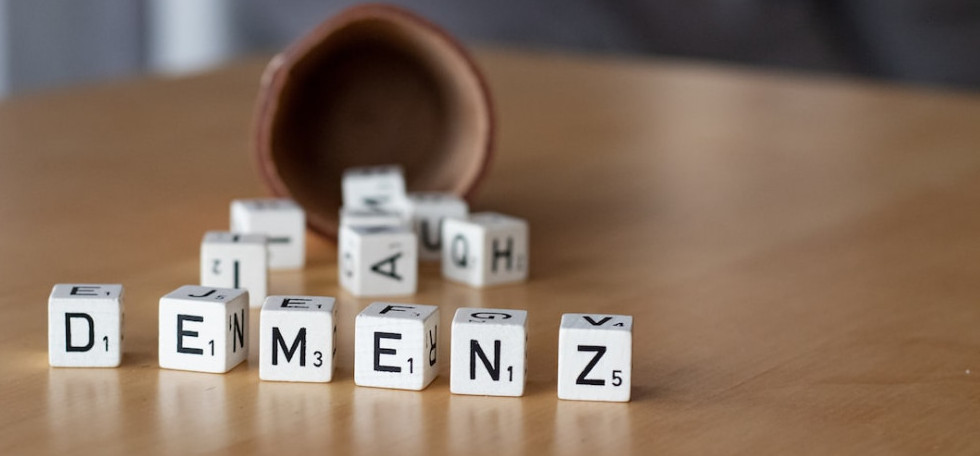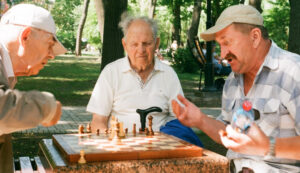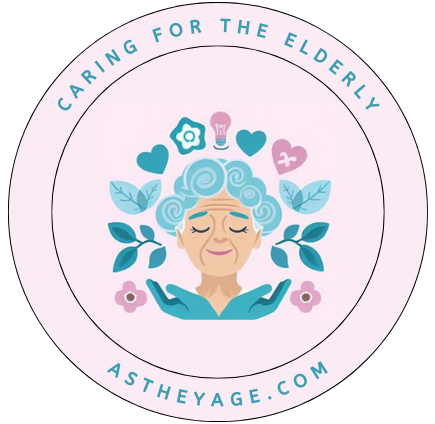
Dementia can happen at any age, however for the elderly symptoms usually appear during their 60s or older and is believed to be early-onset Alzheimer’s. As our loved ones age, they may begin to display symptoms of dementia. The following are a few early symptoms of dementia:
- Memory loss (Forgetting Things)
- Misplacing Things
- Distracted Easily
- Disorientation
- Absence of self-care
Memory Loss
It may start with simple things like frequently misplacing keys, forgetting an appointment, or forgetting activities from the previous day; however, one of the most common early symptoms of dementia is forgetting recent dates, events, and activities. I was speaking to my mom a few months ago. We were speaking about how one of her great-nieces changed overnight. I commented about her great-niece not having parents to direct her (since her father passed before she was born, and her mother had recently passed). My mom’s response was “What happened to her mother” I reminded my mom that her niece had passed away and my mom’s response was “I did not know that” although she had attended the funeral. It is very difficult to watch our loved ones as they go through this process. However, with a little help and support, a few things can be done to aid in the process. These may include:
- Place calendars in frequent spaces

- Writing things down
- Create a daily routine/schedule.
- Start a Journal or Diary
- Put reminder notes on the fridge.
- Create lists and cross items off when they are completed.
- Taking memory supplements
- Any form of memory aid that triggers memories.
- Share your experiences and seek additional information
Easily Distracted
For some people like myself, getting distracted at work is a common thing especially if there are multiple projects with various deadlines occurring simultaneously. Another early symptom of dementia is being easily distracted. As a retiree, my mom acknowledges that she has begun to forget things. A few Sundays ago, I came by her house to pick her up for church; I arrived rather early, and I saw her reading her bible. When I arrived, she asked why was I so early. I explained that I had to run an errand earlier, so I came by early. Just then I smelled some coffee burning on the stove. I asked her if she was boiling coffee, and it was just then she realized that she forgot the coffee on the stove she said “I was making my coffee for breakfast and I the pastor on the radio mentions a scripture and I decided to look it up and I came outside read it forgetting the coffee on the stove. In another incident, she was cooking dinner and went inside one of the bedrooms in her house and while looking around she noticed that the room needed cleaning and began cleaning it forgetting that she was cooking. It wasn’t until she smelled it burning that she remembered that she was cooking. I suggested that she set a timer based on the time it takes to cook the next time as a reminder when it goes off.
Disorientation
Disorientation is defined as being confused about the time, location, or one’s identity. Disorientation is also another symptom of early dementia. A few years ago, a friend mentioned that one of his colleague’s had to shut down his business locally because he needed to take care of his wife. I found it strange, because we live on a 32-square-mile island it was impossible to get lost. so, I inquired. He stated that the colleague’s wife had forgotten her way home while driving home one night. Luckily, the man’s wife had her cell phone and was able to call her spouse and he was able to guide her home without incident. Had she not been able to call the situation may have ended much differently. On this 32 square-mile island I call home, there have been several instances of the elderly being reported as missing, some have been found safe, while others are not or are still missing. Before I got help for my uncle, he wandered off several times, however, we were able to find him without incident. Below are a few suggestions for dealing with disorientation:
Be Proactive:
- Remain Calm

- Don’t take it personally.
- Give them a short explanation.
- Share with them items of the past such as photos, a ring, or any other special items that can trigger a memory or association.
- Offer suggestions without sounding condescending.
- Share your experiences and seek additional information.
Take Safety Measures:
- Get your neighbors involved.
- Get an ID Card like a medical alert for dementia that includes the contact information of caretaker
- Install a security camera
- Install a tracking app on their phone or a GPS tracking device
- Share your experiences and seek additional information or ideas
Absence of Self-Care
Years ago, I saw one of my former schoolteachers at a local bank. I called out to him and he recognized me. Although he was nicely dressed, as I approached him, I noticed that he smelled of urine. I was unsure how to deal with the situation, fearing that he might get embarrassed I said nothing. Another early symptom of dementia is an absence or the lack thereof of self-care. Sufferers may forget to take a bath, change their clothes or clean up their homes. This symptom may be caused due to illness, or signs of depression such as loss of appetite, sleeping disorders, or lack of interest in normal activities.
Sometimes all that is needed is a gentle reminder, however, for others, it takes a lot more effort. They get upset and refuse to cooperate or get assistance like their independence is being threatened. As a child, I remember my dad disciplining me after coming home from work and realizing that I did not bathe after school. Today, my dad back then compared to now is like night and day. Getting him to take a bath let alone changing into clean clothes after taking a bath is like pulling teeth. He says “I don’t have to bathe every day”; “I am not going anywhere why do I have to change my clothes” or “I am a grown man you can’t tell me what to do”. Basically, as he got older, he no longer saw the need to keep up proper hygiene or remove the clutter at his home, he always has a reason to hang on to old items around the house. Here are a few suggestions for assisting:
- Remind them to bathe or offer to help them.
- Remind them to take their medications or assist them.
- Periodically check and discard spoiled or expired foods
- When possible, clean up and make repairs around the house; while ensuring that the changes are not drastic. Remember they are happy/comfortable with familiarity.
Reducing the RISK
There is no guaranteed way to prevent dementia, however, there are a few things we can do to delay the onset. Here are a few suggestions:

- Stay physically active.
- Eat healthily
- Reduce alcohol consumption.
- Manage health issues such as High Blood Pressure or Diabetes
- Maintain a socially active lifestyle.

- Stimulate your brain with activities like arts & crafts, playing board games, crossword puzzles, or any other stimulating activity
- If you enjoy reading, join a book club
- Get a pet.
If you are worried that you or a loved one are having memory issues, there are different online sites that offer various free memory tests for dementia/Alzheimer’s Disease.
Now it is your turn. I invite you to share your comments, suggestions, questions, or experiences.

